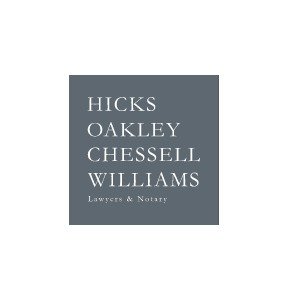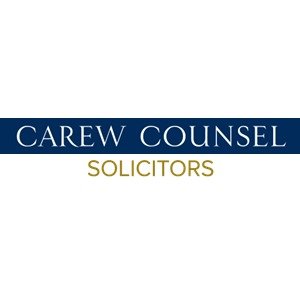Best Estate Planning Lawyers in Melbourne
Share your needs with us, get contacted by law firms.
Free. Takes 2 min.
List of the best lawyers in Melbourne, Australia
About Estate Planning Law in Melbourne, Australia
Estate planning in Melbourne, Australia, involves the process of anticipating and arranging for the management and disposal of a person’s estate during their life and after death. The primary goal is to ensure that your assets are distributed according to your wishes, minimizing legal complexities and costs. It also includes planning for contingencies such as incapacity due to illness or injury. In Australia, estate planning can encompass wills, powers of attorney, superannuation, and trusts. Melbourne, being a major city in Victoria, adheres to state laws that govern these aspects, making it essential for individuals to understand the local legal framework.
Why You May Need a Lawyer
There are several situations where legal help for estate planning might be necessary:
- Complex Family Situations: Blended families, second marriages, or estranged family members can complicate estate distribution.
- Significant Assets: Large estates or diverse asset portfolios might require sophisticated legal arrangements to minimize tax implications.
- Disability Planning: Ensuring provision and care in case of incapacitation is crucial.
- Minimizing Disputes: A professionally drafted estate plan can help prevent disputes among beneficiaries.
- Business Ownership: Planning for succession or transfer of business ownership can be complex and requires expertise.
Local Laws Overview
Victoria's estate planning laws are integral to ensuring your estate is handled according to your wishes. Key aspects include:
- Wills: A will is a vital legal document. In Victoria, it must be written, signed, and witnessed to be valid.
- Powers of Attorney: You can appoint a trusted person to make decisions on your behalf if you're unable to do so.
- Intestate Succession: If you die without a will, the laws of intestacy will determine how your estate is distributed.
- Superannuation: As superannuation involves significant wealth, it needs special consideration in estate planning.
Frequently Asked Questions
What is estate planning?
Estate planning involves making arrangements for how your assets will be managed and distributed during your life and after your death.
Why is it important to have a will?
A will ensures your assets are distributed according to your wishes, helps avoid disputes, and can reduce legal expenses.
Can I write my own will?
While it is possible to write your own will, consulting a lawyer can ensure it complies with legal requirements and fully reflects your intentions.
What happens if I die without a will?
Without a will, your estate is distributed according to intestacy laws, potentially contrary to your personal wishes.
What is a power of attorney, and why might I need one?
A power of attorney allows someone you trust to make decisions on your behalf if you're unable to do so due to incapacity.
How can I ensure my children are taken care of in my estate plan?
You can nominate guardians for your children and set up trusts to manage their inheritance until they reach a responsible age.
Is superannuation part of my estate?
Generally, superannuation is not part of your estate but is managed separately by the super fund trustee. Consider nominating beneficiaries in your super plan.
What is a testamentary trust?
A testamentary trust is established within your will and activates upon your death to manage your assets for the benefit of your heirs.
How often should I update my estate plan?
Review your estate plan at least every five years or following major life changes like marriage, divorce, or the birth of a child.
Can estate planning help reduce taxes?
Effective estate planning can minimize tax obligations, ensuring more of your assets are passed to your beneficiaries.
Additional Resources
Here are some helpful resources related to estate planning in Melbourne:
- Victoria Legal Aid: Offers free legal information and resources (www.legalaid.vic.gov.au).
- Public Trustee Victoria: Offers estate, trustee, and administration services.
- Law Institute of Victoria: An excellent resource for locating qualified legal practitioners.
Next Steps
If you need legal assistance in estate planning, consider the following steps:
- Consult a Lawyer: Seek a lawyer specializing in estate planning to assess your needs and draft appropriate documents.
- Gather Documents: Compile all necessary documents, including assets, liabilities, and identification.
- Identify Goals: Clarify your objectives for asset distribution and management to streamline the planning process.
- Review Regularly: Estate planning is not a one-time task. Regular reviews ensure your plan remains relevant.
Lawzana helps you find the best lawyers and law firms in Melbourne through a curated and pre-screened list of qualified legal professionals. Our platform offers rankings and detailed profiles of attorneys and law firms, allowing you to compare based on practice areas, including Estate Planning, experience, and client feedback.
Each profile includes a description of the firm's areas of practice, client reviews, team members and partners, year of establishment, spoken languages, office locations, contact information, social media presence, and any published articles or resources. Most firms on our platform speak English and are experienced in both local and international legal matters.
Get a quote from top-rated law firms in Melbourne, Australia — quickly, securely, and without unnecessary hassle.
Disclaimer:
The information provided on this page is for general informational purposes only and does not constitute legal advice. While we strive to ensure the accuracy and relevance of the content, legal information may change over time, and interpretations of the law can vary. You should always consult with a qualified legal professional for advice specific to your situation.
We disclaim all liability for actions taken or not taken based on the content of this page. If you believe any information is incorrect or outdated, please contact us, and we will review and update it where appropriate.

















